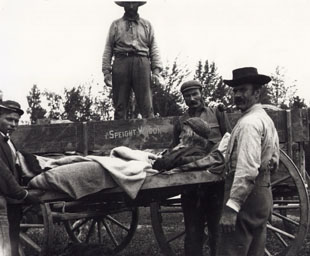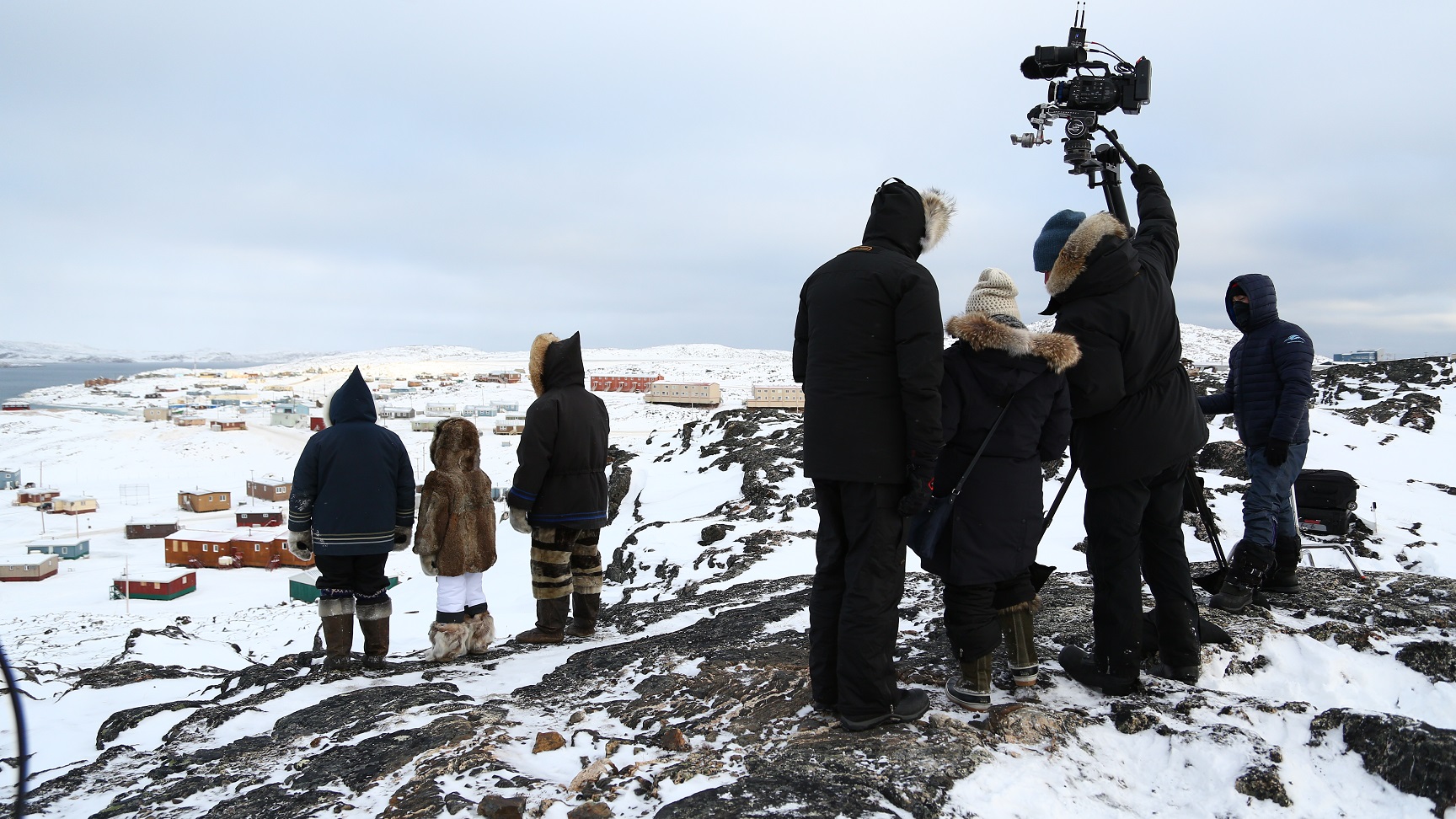Browse "History/Historical Figures"
-
Article
Henning Ingeman Sorensen
Henning Ingeman Sorensen, adventurer, translator (b at Copenhagen, Den 14 May 1901; d at Vancouver 3 Aug 1986). Sorensen abandoned a promising banking career in Copenhagen in 1922 to travel and work through Europe, Africa and N America, finally arriving at Montréal in 1929.
"https://development.thecanadianencyclopedia.ca/images/tce_placeholder.jpg?v=e9dca980c9bdb3aa11e832e7ea94f5d9" // resources/views/front/categories/view.blade.php
https://development.thecanadianencyclopedia.ca/images/tce_placeholder.jpg?v=e9dca980c9bdb3aa11e832e7ea94f5d9
-
Article
Henri de Tonty
Henri de Tonty, explorer, voyageur (b 1649 or 1650; d at Ft Louis-de-la-Louisiane Sept 1704). He was the son of Lorenzo de Tonty, inventor of the "tontine" system of life annuity.
"https://development.thecanadianencyclopedia.ca/images/tce_placeholder.jpg?v=e9dca980c9bdb3aa11e832e7ea94f5d9" // resources/views/front/categories/view.blade.php
https://development.thecanadianencyclopedia.ca/images/tce_placeholder.jpg?v=e9dca980c9bdb3aa11e832e7ea94f5d9
-
Article
Henri-Marie Dubreil de Pontbriand
Henri-Marie Dubreil de Pontbriand, sixth bishop of Québec (b at Vannes, France Jan 1708; d at Montréal 8 June 1760). Educated by the Jesuits and Sulpicians and appointed bishop of Québec in 1740, Pontbriand arrived in August 1741 determined to remedy the abuses of episcopal absenteeism.
"https://development.thecanadianencyclopedia.ca/images/tce_placeholder.jpg?v=e9dca980c9bdb3aa11e832e7ea94f5d9" // resources/views/front/categories/view.blade.php
https://development.thecanadianencyclopedia.ca/images/tce_placeholder.jpg?v=e9dca980c9bdb3aa11e832e7ea94f5d9
-
Article
Henrietta Muir Edwards
Henrietta Louise Edwards (née Muir), women’s rights activist, reformer, artist (born 18 December 1849 in Montreal, Canada East; died 9 November 1931 in Fort Macleod, AB). Henrietta Edwards fought from a young age for women’s rights and education, as well as women’s work and health. She helped establish many movements, societies and organizations aimed at improving the lives of women, and was instrumental in passing Alberta’s Dower Act in 1917. She was also one of the Famous Five behind the Persons Case, the successful campaign to have women declared persons in the eyes of British law. However, her views on immigration and eugenics have been criticized as racist and elitist. She was named a Person of National Historic Significance in 1962 and an honorary senator in 2009.
"https://d2ttikhf7xbzbs.cloudfront.net/s003703k.jpg" // resources/views/front/categories/view.blade.php
https://d2ttikhf7xbzbs.cloudfront.net/s003703k.jpg
-
Article
Henry Fuller Davis
In the late 1860s Henry Davis and others began trading along the upper PEACE RIVER in opposition to the HUDSON'S BAY COMPANY (HBC). In 1886 he based his operation at FORT VERMILION and competed with the HBC until his death.
"https://d2ttikhf7xbzbs.cloudfront.net/media/media/9e0a6d54-5fac-45f4-9c6d-91101b68aaf3.jpg" // resources/views/front/categories/view.blade.php
https://d2ttikhf7xbzbs.cloudfront.net/media/media/9e0a6d54-5fac-45f4-9c6d-91101b68aaf3.jpg
-
Article
Henry Hudson
Henry Hudson, mariner, explorer (born c. 1570 in England; disappeared 1611). Hudson was among a long list of explorers who searched in vain for a northern passage through Arctic waters from Europe to East Asia. He made four voyages historians are aware of, in 1607, 1608, 1609 and 1610–11. While he never found a route, in Canada, Hudson Bay and Hudson Strait are named for him, as well as the Hudson River in New York state. He disappeared, along with his son and seven companions, after being set adrift in a ship’s boat during a mutiny on James Bay in June 1611. (See also Northwest Passage; Arctic Exploration.)
"https://d2ttikhf7xbzbs.cloudfront.net/media/media/5fe6c217-f781-4a77-bb47-b32210f14749.jpg" // resources/views/front/categories/view.blade.php
https://d2ttikhf7xbzbs.cloudfront.net/media/media/5fe6c217-f781-4a77-bb47-b32210f14749.jpg
-
Article
Henry Jones
Henry Jones, community founder (b at Plympton St Maurice, Eng 21 or 22 May 1776; d at Maxwell, Ont 21 Oct 1852). A Royal Navy purser, Jones was probably the first socialist in British North America.
"https://development.thecanadianencyclopedia.ca/images/tce_placeholder.jpg?v=e9dca980c9bdb3aa11e832e7ea94f5d9" // resources/views/front/categories/view.blade.php
https://development.thecanadianencyclopedia.ca/images/tce_placeholder.jpg?v=e9dca980c9bdb3aa11e832e7ea94f5d9
-
Article
Henry Kelsey
Henry Kelsey, explorer, fur trader, sailor (born c. 1667 in East Greenwich near London, England; died 1724 in East Greenwich, England). Kelsey was an explorer and trader who worked for the Hudson’s Bay Company (HBC) for nearly 40 years. He helped establish the Company’s fur trade operations at York Fort on the west coast of Hudson Bay and at Fort Albany on James Bay. Kelsey is best known for his two-year journey from Hudson Bay to the western interior between 1690 and 1692, making him the first European to see the Prairies. His goal was to encourage Indigenous peoples living inland to travel to York Fort to trade their furs.
"https://d2ttikhf7xbzbs.cloudfront.net/media/new_article_images/HenryKelsey/LAC Henry Kelsey Stamp.jpg" // resources/views/front/categories/view.blade.php
https://d2ttikhf7xbzbs.cloudfront.net/media/new_article_images/HenryKelsey/LAC Henry Kelsey Stamp.jpg
-
Article
Henry Norwest
Henry Louis Norwest, Cree sniper during the First World War (born 1884 in Fort Saskatchewan, North-West Territories [present-day Alberta]; died 18 August 1918 in Amiens, France). While serving overseas, Henry Norwest was credited with 115 confirmed kills and received a Military Medal and Bar for his exploits on the battlefield.
"https://d2ttikhf7xbzbs.cloudfront.net/media/new_article_images/HenryNorwest/na-1959-1.jpg" // resources/views/front/categories/view.blade.php
https://d2ttikhf7xbzbs.cloudfront.net/media/new_article_images/HenryNorwest/na-1959-1.jpg
-
Collection
Heritage Minutes
The Heritage Minutes collection is a bilingual series of history-focused public service announcements. Each 60-second short film depicts a significant person, event or story in Canadian history. They are produced by Historica Canada, the not-for-profit organization that also publishes this encyclopedia. First released in 1991, the Heritage Minutes have been shown on television, in cinemas and online. They have become a recognizable part of Canadian culture. The collection currently includes 100 episodes.
"https://d2ttikhf7xbzbs.cloudfront.net/media/media/1bfa3d45-2952-4f79-b7d4-4c6cb6601164.jpg" // resources/views/front/categories/view.blade.php
https://d2ttikhf7xbzbs.cloudfront.net/media/media/1bfa3d45-2952-4f79-b7d4-4c6cb6601164.jpg
-
Article
Hiawatha
Hiawatha is an important figure in the precolonial history of the Haudenosaunee (Iroquois) of present-day southern Ontario and upper New York (ca. 1400-1450). He is known most famously for uniting the Five Nations—Seneca, Cayuga, Onondaga, Oneida and Mohawk—into a political confederacy. In 1722, the Tuscarora, a tribe from much farther south, joined the Confederacy, forming what we now know as the Six Nations. The story of Hiawatha should not be confused with the popular poem by Henry Wordsworth Longfellow, The Song of Hiawatha (1885). While Longfellow references Hiawatha, the poem’s focus is actually an Algonquian cultural hero, Nanabozho. Whether this was an intentional or accidental error, Longfellow’s poem confused the history of Hiawatha.
"https://d2ttikhf7xbzbs.cloudfront.net/media/media/7a68d863-fc17-4c7e-93c6-f319e31f9706.jpg" // resources/views/front/categories/view.blade.php
https://d2ttikhf7xbzbs.cloudfront.net/media/media/7a68d863-fc17-4c7e-93c6-f319e31f9706.jpg
-
Article
History of Acadia
Acadia’s history as a French-speaking colony stretches as far back as the early 17th century. The French settlers who colonized the land and coexisted alongside Indigenous peoples became called Acadians. Acadia was also the target of numerous wars between the French and the English. Ultimately, the colony fell under British rule. Many Acadians were subsequently deported away from Acadia. Over time, as a British colony and then as part of Canada, Acadians increasingly became a linguistic minority. Nonetheless, Acadians have strived to protect their language and identity throughout time.
"https://d2ttikhf7xbzbs.cloudfront.net/media/media/66c056b0-bee3-47a2-9680-5d5a50b5e7eb.jpg" // resources/views/front/categories/view.blade.php
https://d2ttikhf7xbzbs.cloudfront.net/media/media/66c056b0-bee3-47a2-9680-5d5a50b5e7eb.jpg
-
Article
Hugh Palliser
Hugh Palliser, naval officer, governor of Newfoundland (b at Kirk Deighton, Eng 26 Feb 1722/ 23; d at Chalfont St Giles, Eng 19 Mar 1796). He was a naval officer at the siege of Québec in 1759, and was appointed governor of Newfoundland 1764.
"https://development.thecanadianencyclopedia.ca/images/tce_placeholder.jpg?v=e9dca980c9bdb3aa11e832e7ea94f5d9" // resources/views/front/categories/view.blade.php
https://development.thecanadianencyclopedia.ca/images/tce_placeholder.jpg?v=e9dca980c9bdb3aa11e832e7ea94f5d9
-
Article
Igor Gouzenko
Igor Sergeievitch Gouzenko, Soviet intelligence officer, author (born 26 January 1919 in Rogachev, Russia; died 25 June 1982 in Mississauga, ON). Igor Gouzenko was a Soviet cipher clerk stationed at the Soviet Union’s Ottawa embassy during the Second World War. Just weeks after the end of the war, Gouzenko defected to the Canadian government with proof that his country had been spying on its wartime allies: Canada, Britain and the United States. This prompted what is known as the Gouzenko Affair. Gouzenko sought asylum for himself and his family in Canada. His defection caused a potentially dangerous international crisis. Many historians consider it the beginning of the Cold War.
"https://d2ttikhf7xbzbs.cloudfront.net/media/media/ef877228-646a-42e0-8096-b939feb24100.jpg" // resources/views/front/categories/view.blade.php
https://d2ttikhf7xbzbs.cloudfront.net/media/media/ef877228-646a-42e0-8096-b939feb24100.jpg
-
Editorial
Editorial: Igor Gouzenko Defects to Canada
The following article is an editorial written by The Canadian Encyclopedia staff. Editorials are not usually updated. A knock on the apartment door froze him in his steps. Another knock, louder, more insistent. The knocking turned to pounding. A voice called his name several times. Finally, the pounding stopped, and he heard footsteps going down the stairs. He knew he needed help.
"https://d2ttikhf7xbzbs.cloudfront.net/media/media/ef877228-646a-42e0-8096-b939feb24100.jpg" // resources/views/front/categories/view.blade.php
https://d2ttikhf7xbzbs.cloudfront.net/media/media/ef877228-646a-42e0-8096-b939feb24100.jpg
